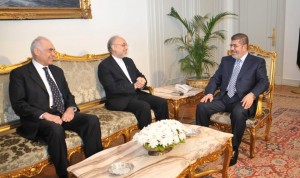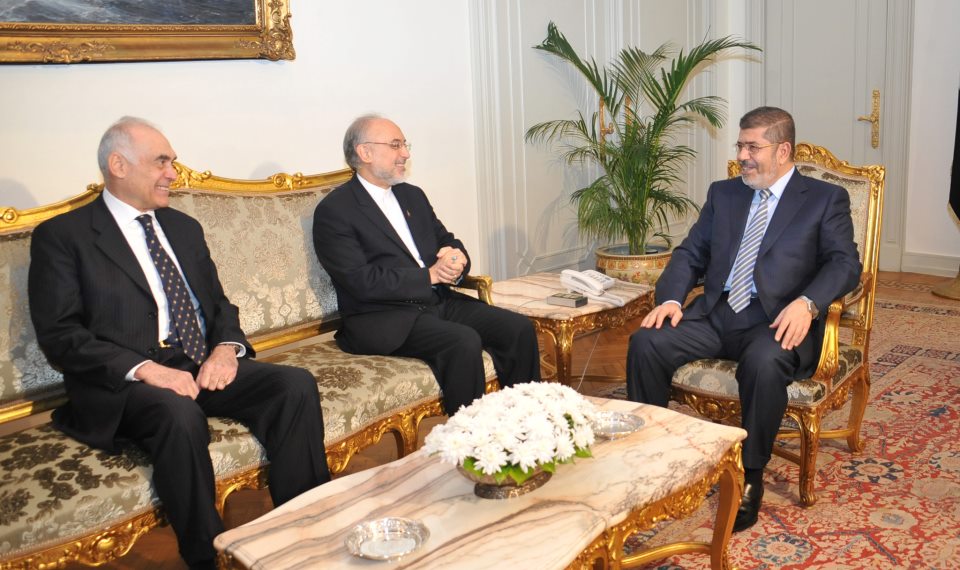
AFP – Iranian Foreign Minister Ali Akbar Salehi on Thursday urged Middle East nations to promote a solution for Syria’s conflict that excludes “foreign intervention,” after talks in Cairo with Egyptian leaders.
The renewed statement of Tehran’s position on its key ally came as fighting dragged on in Syria, where more than 60,000 people have been killed in the past 21 months according to a UN estimate.
It also came a day after the Damascus regime freed more than 2,100 of its detainees in exchange for 48 Iranians the Syrian rebels had been holding.
“I call with all my heart for the neighbouring countries, the countries of the region to come together to find a solution to the crisis in Syria, a solution that must be Syrian only to avoid any foreign intervention,” Salehi told reporters after meeting Egyptian President Mohamed Morsy.
“Foreign countries don’t want the best for us so we must work to find a Syrian solution to the crisis,” he said, with Egyptian Foreign Minister Mohamed Kamel Amr at his side.
There was no comment as to how Iran and Egypt could reconcile their opposing views on the Syrian conflict to reach such a solution.
Tehran is committed to the survival of Syrian President Bashar al-Assad and his regime. It has supplied financial aid and admitted to sending Revolutionary Guards military advisors to Damascus, but does not consider that “foreign” interference on its part.
Egypt’s Morsy, though, has sided with Syria’s rebels, whom he sees as upholding the revolutionary ideals that brought him and his Muslim Brotherhood to power as part of the Arab Spring.
Regional heavyweights Saudi Arabia, Turkey and Qatar also sympathise with the rebels, as does Iran’s erstwhile Palestinian ally Hamas.
A four-nation group on Syria that Morsy brought together, comprising Egypt, Saudi Arabia, Turkey and Iran, failed to make any headway after a Cairo meeting in September that Salehi attended.
A unilateral six-point “peace plan” Iran has proposed that entails Assad remaining in power — something the Syrian opposition rejects out of hand — has also gone largely ignored internationally.
Iran is the only country to have backed another, three-stage “peace plan” Assad outlined in a speech last Sunday that offered dialogue, but only with opposition elements he deemed acceptable, not rebel-linked groups he called “terrorists”.
During his visit to Cairo on Thursday, Salehi said he had “an exchange of views on the Syrian crisis and ways to find a solution” with Kamel Amr.
He also saw the joint UN-Arab League envoy Lakhdar Brahimi, an Iranian diplomat told AFP without detailing the substance of their conversation.
Brahimi is to hold talks on Friday in Geneva with senior Russian and US diplomats on the Syrian civil war.
The United States and the European Union contend that Assad has lost touch with reality by clinging tenaciously to power and defiantly waging an escalating war with the rebels calling for his ouster.
Russia and China, however, are blocking an international action against Assad’s regime in the UN Security Council.
Consultations between the United States and Russia in December resulted in leaked reports of a joint Russia-US initiative on moving toward a transition government that the armed opposition could embrace.

